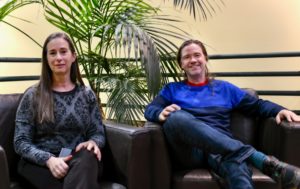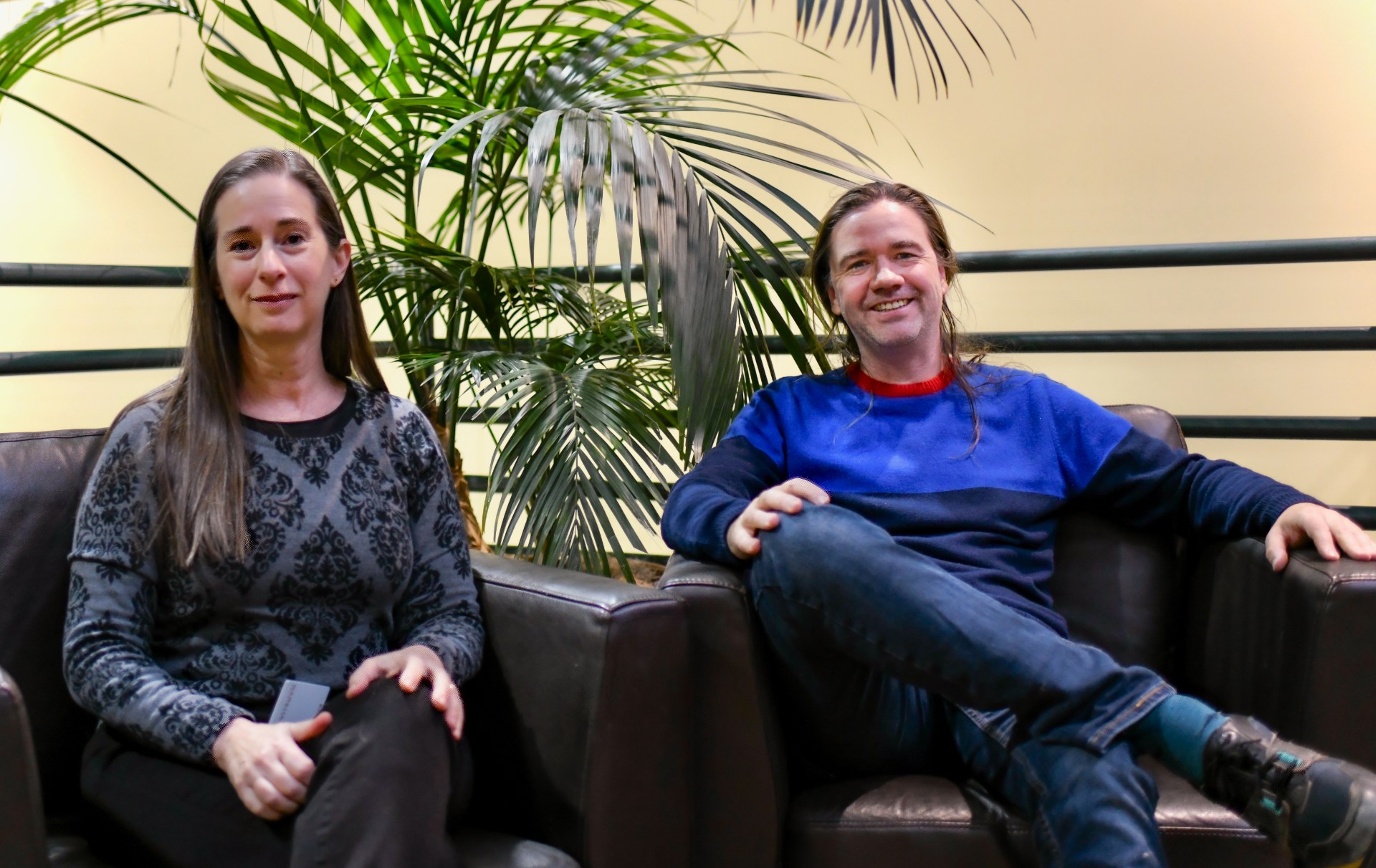Rare diseases need more research and better treatments; two scientists discuss a path forward.
As much as 10 percent of the population is thought to have a “rare disease.” Due to a lack of understanding, many of these diseases remain very difficult to diagnose and treat. Inspired by the enormous unmet needs of people with rare diseases, an international team of scientists is developing open-access tools and resources for sharing disease characteristics and treatment information.

Nomi Harris and Chris Mungall photographed at Aquatic Park. (Credit: Laurent-Philippe Albou/Berkeley Lab)
The project team, led by Melissa Haendel of Oregon Health & Science University, and Tudor Oprea of the University of New Mexico, includes Berkeley Lab Biosciences researchers Chris Mungall, Nomi Harris, Deepak Unni, and Marcin Joachimiak. The research is centered around an AI-enabled catalog of disease descriptions called Mondo, which, like a Wikipedia for rare diseases, can be added to and improved by the scientific and medical community.
In a recent commentary in Nature Reviews Drug Discovery, the group explained how agreeing on precise definitions of each rare disease can lead to more accurate diagnoses and better treatments. They also shared results from a preliminary analysis that suggests that the number of different rare diseases may be higher than previously estimated.
Mungall and Harris spoke with the Strategic Communications about the project and why they are participating in it. Read the Q&A in the News Center.




